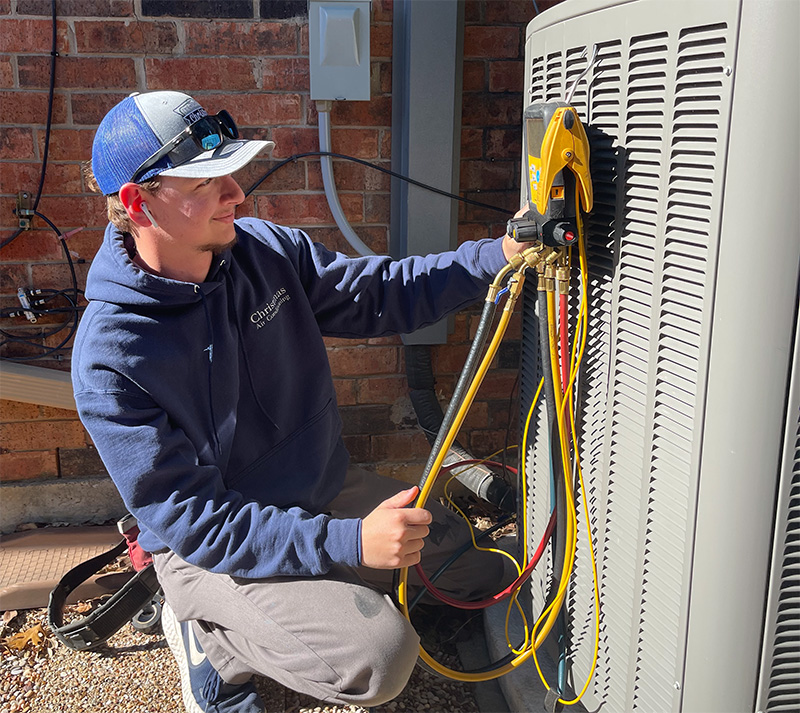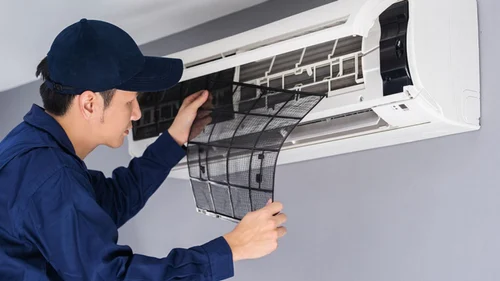Top Guidelines Of Air Conditioning Repair Near Me
The Main Principles Of Air Conditioning Repair Near Me
AC Fixing: Professional Cooling System Restoration Ensures Your Home Remains Comfortable All Year Round
Kinds Of Air Conditioner Systems
When dealing with air conditioner repair, comprehending the kind of cooling system you're dealing with can save time, money, and irritation. Ever wondered why some units cool a room much faster than others? Or why particular systems appear to break down more frequently? Let's peel back the layers.
Central Air
The Best Strategy To Use For Air Conditioning Repair
Imagine a cool breeze flowing through an entire house, whispering convenience into every corner. Central air conditioning systems do precisely that. They use a network of ducts to distribute cooled air, depending on a compressor and condenser outside, combined with an evaporator coil inside. However when this complex monster fails, identifying the problem can be like discovering a needle in a haystack.
Split Systems

Split systems are a popular check here option for numerous homes-- part indoor system, part outdoor compressor. They use flexibility and effectiveness, however their dual nature suggests repair work can involve either element. Have you ever heard a weird noise outside your house only to find the indoor system isn't cooling? That's a classic sign of a split system glitch.
Indicators on Air Conditioning Repair You Should Know
Window Units
These compact warriors fight summer heat by fitting comfortably into a window frame. They integrate all parts into a single box. Their simplicity typically indicates less repair headaches, however overlooking filters or allowing particles accumulation can lead to decreased performance or breakdowns.
Ductless Mini-Splits
The 7-Minute Rule for Ac Repair Near Me
Ductless systems bypass ductwork completely, making them ideal for homes without existing ventilation. They're quiet, efficient, and surprisingly resistant. Yet, when repair work are required, technicians need to be skilled at managing refrigerant lines and electrical connections-- no little task.
Quick Recommendation Table
| Type | Key Includes | Typical Repair Work Issues |
|---|---|---|
| Central air conditioning | Ductwork, whole-house cooling | Duct leakages, compressor failure |
| Split System | Indoor & & outside systems | Refrigerant leakages, fan motor issues |
| Window System | All-in-one, simple installation | Filthy filters, electrical faults |
| Ductless Mini-Split | No ducts, zoned cooling | Line leaks, sensor malfunctions |
Facts About Ac Repair Uncovered
Unwinding one of the most Regular Air Conditioner Dilemmas
Have you ever questioned why your air conditioner suddenly stops cooling throughout a sweltering afternoon? One typical culprit is a dirty or stopped up air filter. This sneaky villain restricts airflow, forcing your system to work overtime, which not only lowers effectiveness but can also lead to early breakdowns. Envision trying to breathe through a scarf soaked in dust-- it's tiring!
Another frequent misstep is refrigerant leakages. These undetectable leaks do not simply decrease cooling power but can likewise damage the compressor, the heart of your air conditioning unit. How typically do you look for uncommon hissing noises or ice development on the coils? Capturing these signs early can save you from costly repair work down the line.
Beyond the Basics: Lesser-Known Issues
How Ac Fixing can Save You Time, Stress, and Money.
Often, the thermostat itself is the nuisance. Miscalibrated or defective thermostats send mixed signals, causing the air conditioning to cycle erratically. Ever skilled your air conditioner turning on and off in rapid succession? That's called brief cycling, a tricky effectiveness drainer that can break parts much faster than you 'd expect.
Electrical problems, such as used wiring or a malfunctioning capacitor, may lurk beneath the surface. Fix Air Conditioner. These frequently manifest as air conditioning units stopping working to begin or all of a sudden shutting down. An expert eye knows to check these parts with precision tools, something a casual glance will not expose
Professional Tips for Diagnosing Common Air Conditioning Problems
Ac Fixing Fundamentals Explained
- Inspect and replace air filters frequently-- every 1 to 3 months depending on use and environment.
- Listen for unusual sounds like rattling or buzzing that might signify loose parts or electrical faults.
- Inspect the outdoor unit for debris or blockages that hamper air flow and cause getting too hot.
- Look for frost accumulation on evaporator coils, a tip towards refrigerant issues or air flow limitations.
- Evaluate the thermostat settings and recalibrate if the temperature readings feel off.
Quick Referral Table: Manifestation & & Probable Causes

| Symptom | Probable Cause | Specialist Pointer |
|---|---|---|
| Warm air blowing | Low refrigerant or dirty coils | Tidy coils and look for leaks immediately |
| Short biking | Thermostat problems or extra-large system | Change thermostat settings and seek advice from sizing standards |
| System will not begin | Electrical faults or capacitor failure | Test electrical wiring and replace capacitors as needed |
| Water leakage | Obstructed drain line or frozen evaporator | Clear drain lines and examine for coil icing |
DIY A/c Upkeep Tips
What Does Fix Air Conditioner Do?
Ever seen your air conditioning unit sputtering like an old engine on a hot summer day? Ignoring subtle indications typically means more than just a sweaty afternoon-- it's a prelude to unanticipated a/c repair expenses. What if you could catch those whispers before they turn into wails? Routine DIY upkeep can be your very first line of defense.
Easy Steps to Keep Your A/c Running Efficiently
What Does Ac Repair Mean?
- Clean or Replace Filters: A clogged filter resembles attempting to breathe through a scarf. Every 1-3 months, inspect and swap out your filters. It enhances airflow and efficiency, avoiding compressor pressure.
- Check the Condenser Coils: Dust and debris serve as undetectable blankets smothering your system's cooling power. Gently brush or vacuum the coils, but avoid extreme chemicals that might erode the metal.
- Check the Drain Line: When was the last time you glimpsed at your drain pan? A clogged drain can trigger water leakages and foster mold growth. Flushing it with a vinegar solution monthly keeps the circulation clear.
- Seal and Insulate: Are your ductworks whispering leakages? Sealing gaps with mastic or foil tape increases efficiency and reduce irregular cooling.
Pro Tips Beyond the Essentials
- Step your unit's voltage to capture subtle electrical wear before it stimulates huge problems.
- Listen for unusual hums or rattles-- these acoustic breadcrumbs frequently signify loose parts or stopping working motors.
- Keep outside units shaded however make sure at least two feet of clearance around them for optimal airflow.
Ask yourself: Are you hearing your AC's peaceful SOS or just waiting on it to yell? Taking some time for DIY a/c upkeep changes reactive repair into proactive care, saving sweat, stress, and yes, cash.
The 15-Second Trick For Air Conditioning Repair
Why Proficiency in Air Conditioner Repair Work Matters
Picture this: your a/c system sputters and groans throughout a scorching afternoon, leaving you sweltering inside your home. Would you trust an amateur fumbling with fragile elements, or would you look for the reassurance of a expert air conditioning technician!.?.!? The complexities of contemporary a/c systems demand accuracy and experience. A minor miscalculation can escalate a minor malfunction into an expensive catastrophe.
Ac Air Conditioner Repair Things To Know Before You Buy
Hidden Complexities Behind the Cool Breeze
Lots of undervalue the layers concealed underneath the streamlined exterior of an a/c system - AC Repair. From refrigerant leaks that silently drain performance to malfunctioning thermostats that misread temperatures, these problems require more than a fundamental toolkit. Professionals possess an eager eye for detecting issues that balance house owners ignore
Important Tips for Picking the Right Technician
Some Of Air Conditioner Repair Near Me
- Certification and Training: Confirm credentials; a professional trained in the most recent a/c innovations is indispensable.
- Experience with Particular Systems: Not all air conditioning systems are created equal; find someone familiar with your model's peculiarities.
- Diagnostic Approach: Experienced specialists use sophisticated tools-- like electronic leak detectors and thermal imaging-- to identify covert faults.
What to Get out of a Pro's Diagnostic Process
| Action | Function | Expert Insight |
|---|---|---|
| Visual Assessment | Recognize apparent wear or damage | Search for rust or unusual noises-- a telltale indication typically disregarded |
| Pressure Checking | Discover refrigerant leaks | Subtle pressure drops can mean micro leaks undetectable to the naked eye |
| Electrical Evaluating | Make sure circuit integrity | Loose connections can imitate serious mechanical failures |
The Buzz on Air Conditioning Repair Near Me
Why DIY Often Falls Short
Appealing as it is to play with your air conditioner system, DIY fixes frequently miss out on the source. Topping off refrigerant might briefly cool your area but ignores leaks that get worse over time. Professional specialists don't simply spot symptoms; they pursue the underlying mechanical and electrical faults that sap efficiency.
Air Conditioner Repair Near Me Things To Know Before You Buy
Questions to Ask Before Working with
- What diagnostic tools do you use to recognize concerns?
- Can you describe the repair process and anticipated results?
- Are you acquainted with the refrigerants compatible with my unit?
- Do you follow safety procedures for dealing with electrical parts?